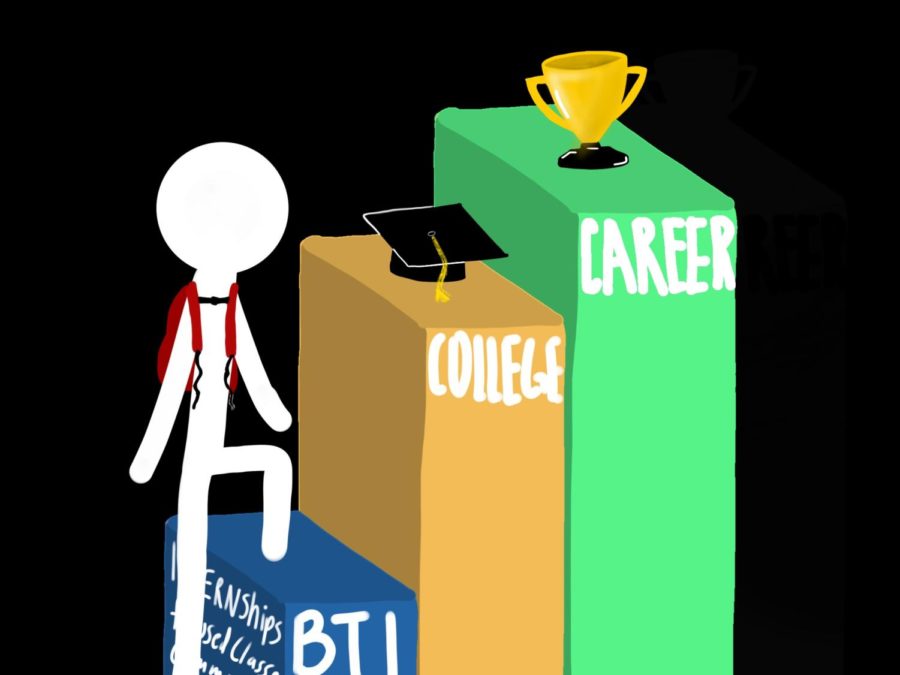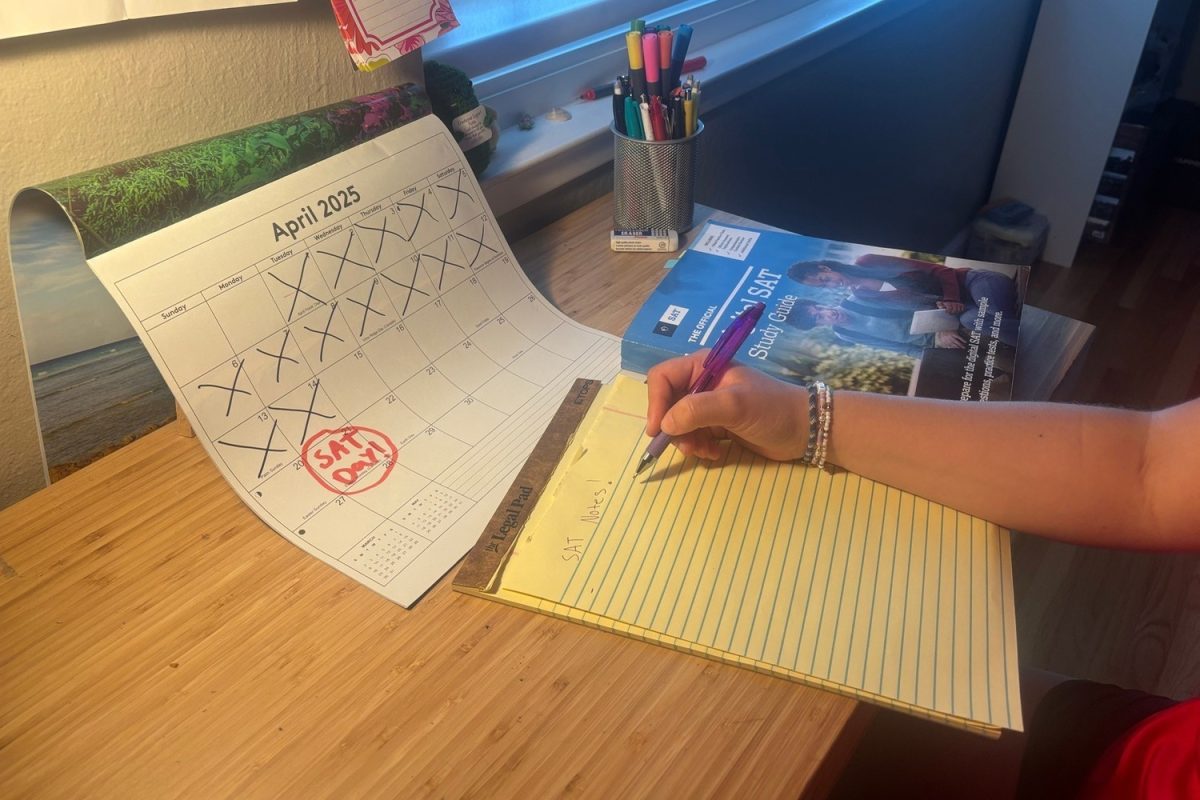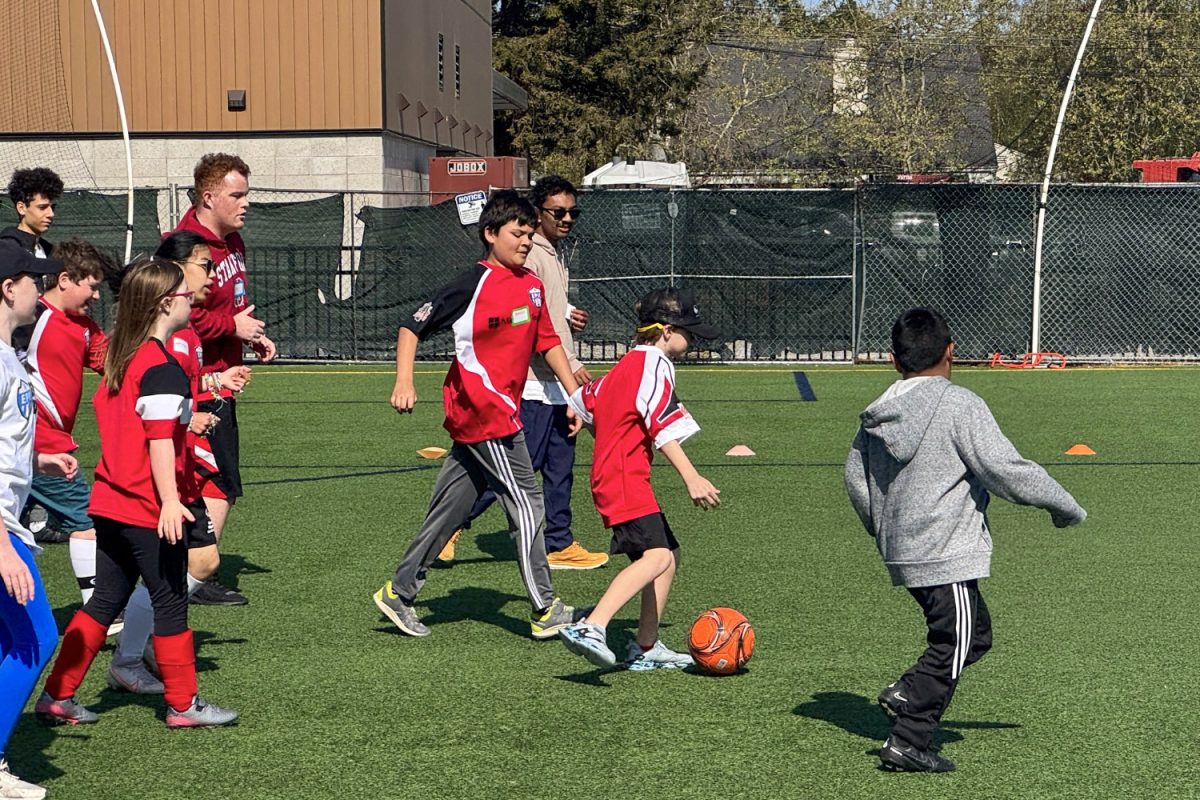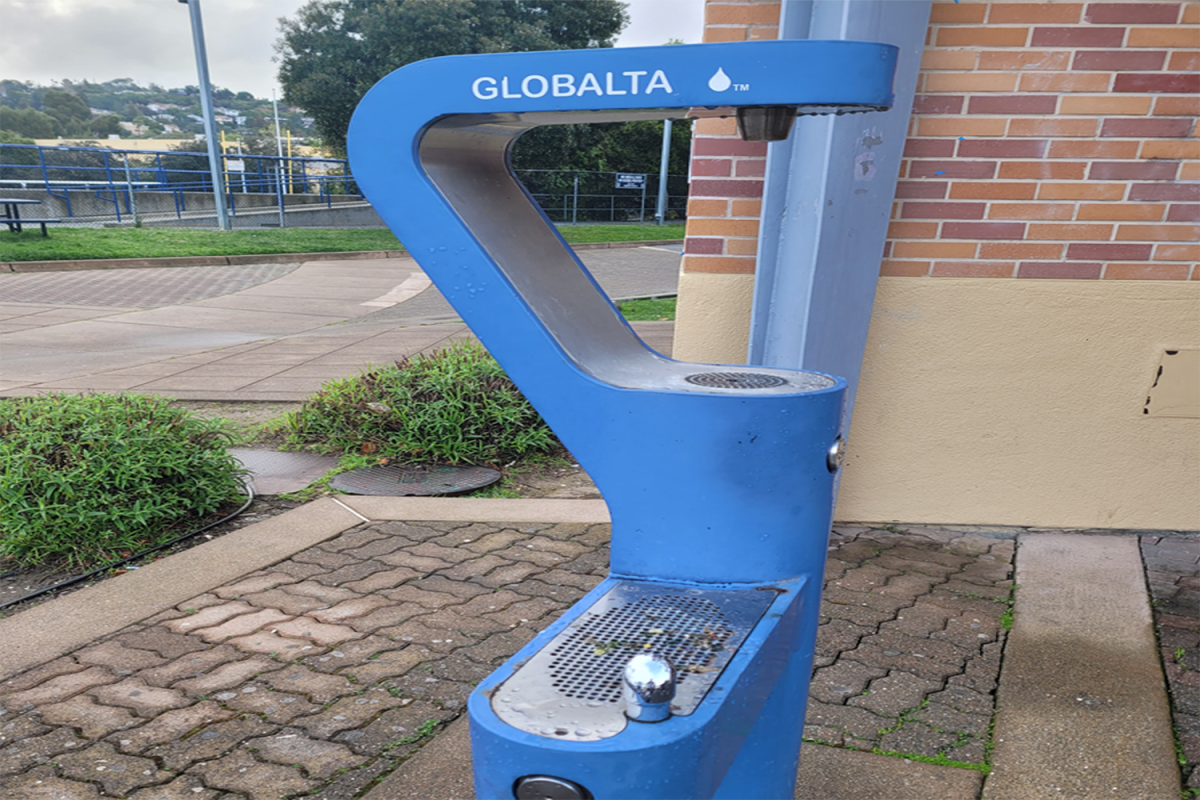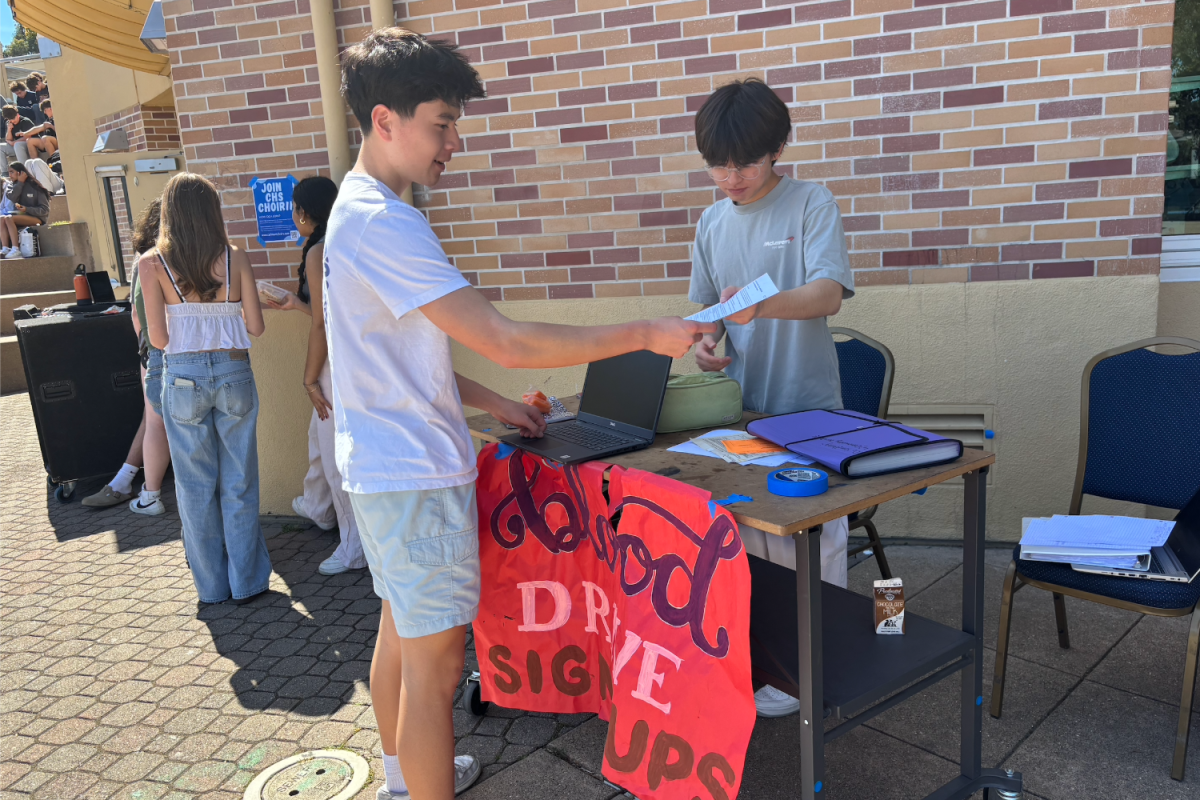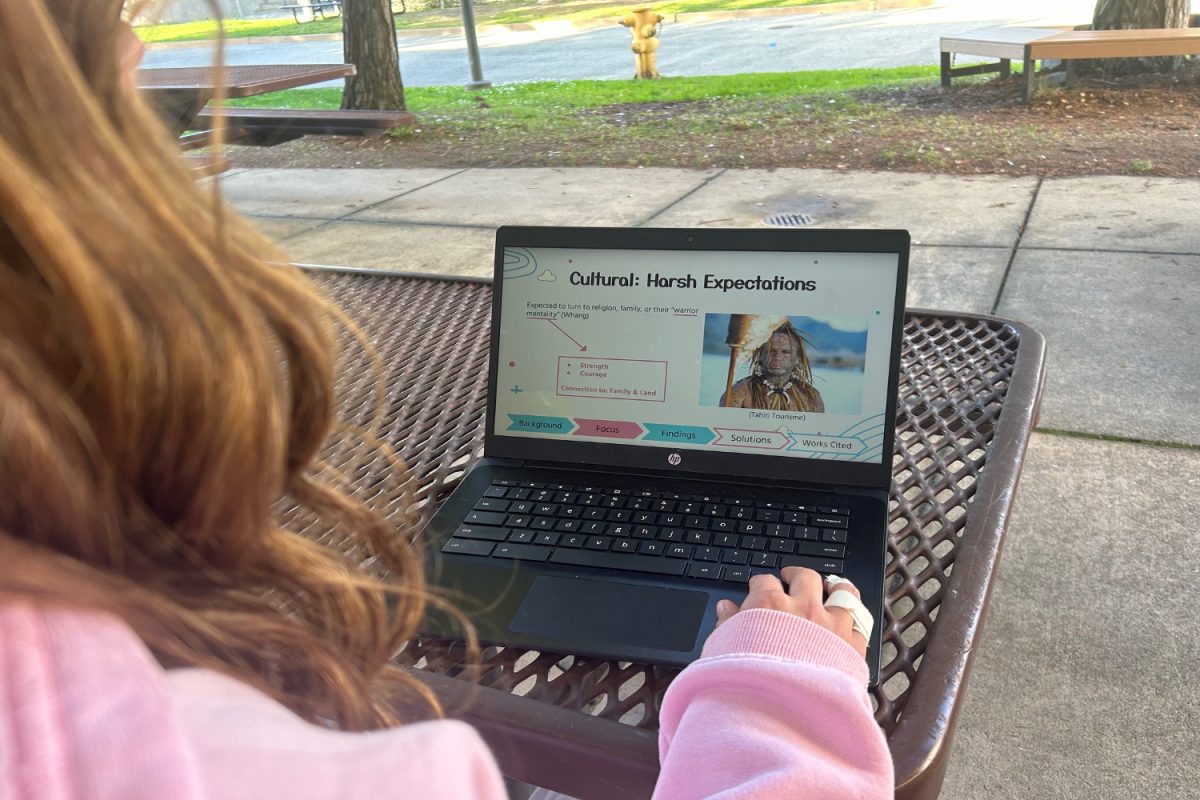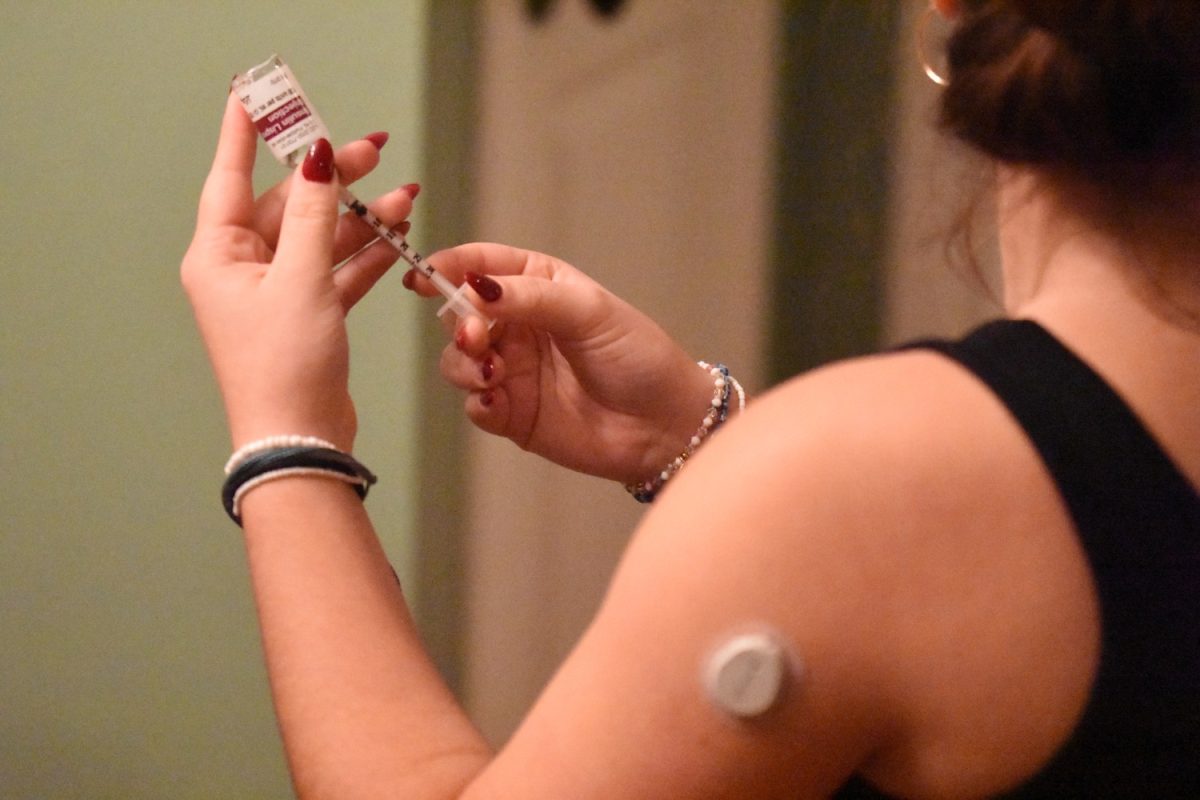Carlmont constructed a $6.7 million lab building in 2011. The goal? To introduce possibilities for students.
Since 2002, Carlmont has been offering biotechnology courses. However, in 2015, the school launched a three-year cross-curricular program centrally focused on biotech, called the Biotechnology Institute (BTI).
New English and history curriculums were created specifically oriented towards biotech. This semester BTI sophomores read the dystopian novel, “Brave New World,” instead of “All Quiet on the Western Front” that the regular English classes read.
“BTI classes have a central theme that the students of BTI are interested in it. It keeps them engaged, then they can go deeper into the content,” said Tyler Kochel, a teacher in the BTI program.
BTI has around 60 students per grade and includes sophomores, juniors, and seniors. The small number of BTI students means that classes are often smaller than regular classes.
“They’re in a lot of the same classes together,” Kochel said. “They’re going through a lot of the same experiences like the BTI field trips where they get a chance to bond.”
BTI is structured so that it maximizes the time students spend together to create a tight-knit community. Such a structure includes academic field trips like to the Exploratorium. Additionally, the program has monthly events for its students, such as a pie feast for Thanksgiving and a study night before winter finals.
The greater student to faculty ratio also allows for more student-teacher interactions to help them dive deeper into topics, as a large portion of BTI classes are experiments and project-based learning.
The program enables students to become immersed in the field of biotechnology, a rapidly growing industry with a predicted market worth of $795.7 billion by 2026, according to MarketWatch. Biotech is responsible for developments in areas such as medicine and agriculture; pest-resistant crops, vaccines, and antibiotics are all developed using biotechnology.
Similarly, local biotechnology companies have been more than willing to help out Carlmont’s BTI students. In the fall semester, students attend a symposium with experts to explore career pathways and possible internships, `such as with Genentech or 23AndMe.
“Students get the opportunity to interact with many professionals in the scientific community through the mentor program, which includes a job shadow day, they also participate in an on-campus symposium and take field trips to biotechnology companies,” said Susan Gold, a BTI English teacher.
Some BTI students have already applied for internships, and others have already had experience with internships.
“I have a potential internship during the summer at a biotech company called IncellDx. I’m excited about that, and I think there will be more opportunities [for internships],” said Leah Bloom, a sophomore in the biotech program.
Along with perks in college applications, internships allow students to experience biotechnology in the career world outside of school.
Immersive classes and possibilities for internships, the BTI program appeals to many students interested in science, but it’s not for all.
As a sophomore, it is Gavin McMicheal’s first year in the BTI program. He does not like the small pool of classes he can choose from and plans to leave the program next year.
“You basically get all biotech focused classes which are cool, but in the same sense, you cannot take any advanced classes,” McMichael said.
However, the BTI program did not fail to accomplish its ultimate goal: preparing students for their future, hopefully in the biotechnology field.
“It helped me realize how much I want to be in AP classes,” McMichael said.
Students are able to take all AP courses with the exception of English and History. In addition, all Biotech classes in BTI are dual-enrolled, meaning students earn both Carlmont and college credits.
Even though BTI wasn’t the right fit for McMichael, the program did what it was designed to do. Without trying it, McMichael would have never known what the course was all about, but now that he has tried BTI, he has a better understanding of his own goals.
“It also helped me realize my occupational goals,” McMichael said.
He is quite interested in biotech, from the immersive introduction he gets from BTI, and considers biotechnology an option for college. BTI looks to sharpen the hazy and indistinct cloud that is a high school student’s future by allowing them to explore the field of biotechnology.
“I want to get the experience and the skills needed for a scientific career out of BTI,” Bloom said. “Biotech has made me consider other potential careers I would have in this field.”

